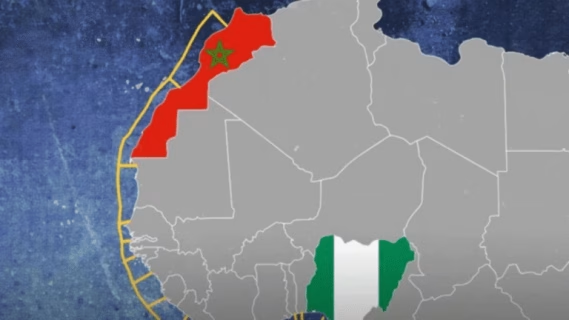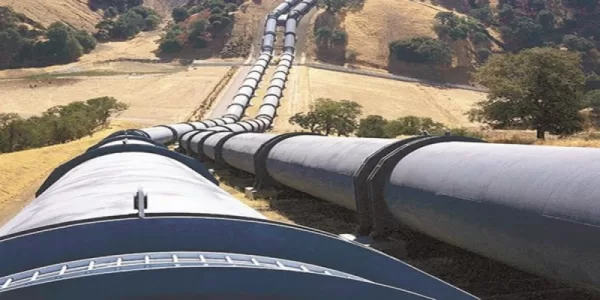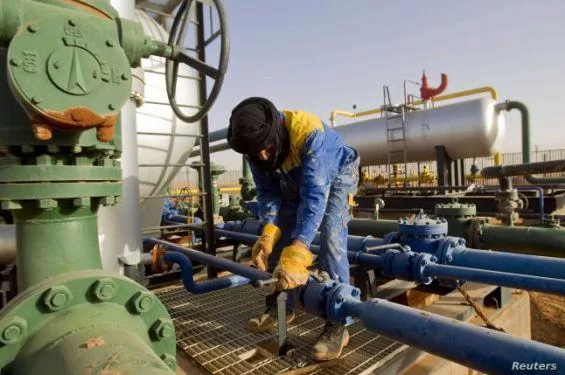Updated October 2, 2025: The ambitious Morocco-Nigeria gas pipeline is making advances as the pipeline’s project company is officially established. Furthermore, it has also expanded its international financial banking, showing its advancement commitment. The insight is according to a statement by the Director-General of Morocco’s National Office of Hydrocarbons and Mines, Amina Benkhadra. The pipeline, set to stretch nearly 6,000 km across West Africa, is designed to enhance regional energy access. Furthermore, it will provide a secure link for Nigerian gas to reach Europe. Technical studies completed in 2025 were said to have confirmed the pipeline’s route. The monumental project is engineered to transport between 15 and 30 billion cubic meters of gas per year and serving 13 West African coastal states. Moreover, it is expected to benefit approximately 400 million people. Internal domestic connections will also link landlocked countries like Niger, Burkina Faso, and Mali to the main line.
State of Affairs Regarding the Morocco-Nigeria Pipeline Project

In regards to the project company on the Morocco-Nigeria pipeline project, project governance will be layered. Furthermore, it will feature a parent company that oversees regional entities managing specific pipeline segments. The framework will be approved by the Economic Community of West African States (ECOWAS). On the financing front, Energy Minister Leïla Benali indicated that the United Arab Emirates will join a pool of existing major institutions. These includes the including the European Investment Bank, the Islamic Development Bank, and the OPEC Fund. “The project company currently being formed will be responsible for mobilising these funds, with a final investment decision expected by the end of 2025,” the statement concluded. Gas pipeline projects are becoming a norm with projects such as the East African Crude Oil Pipeline project taking shape. Its completion is expected to have a significant impact in the East African region.
Morocco is foreseen to launch the tenders of the ambitious Nigeria to Morocco gas pipeline in the year 2025. According to news outlets such as Al Awsat, mentioned that this new progress is part of the 2025 Action Plan from the National Office of Hydrocarbons and Mines (ONHYM). It also added that the tenders will be focusing on the parts that are exclusively in Morocco.
The very first phase of the project will be mainly inclusive of Morocco, Mauritania, and Senegal. Moreover, it would also entail the agreements for the gas transport and it is set to be signed next year.
A Private Company to Manage Construction, Operation, and Maintenance of the Pipeline
“A private company will be set up and will be tasked with managing the construction, operations, and the maintenance works of this upcoming ambitious project.” Asharq quoted a document that is related to this ambitious project that had been assessed by the news outlet.
This ambitious pipeline project is expected to run through a total of 16 countries, of which a bigger number of the countries are situated along the Atlantic coast.
The Pipeline Set to be Connected to the Morocco-Europe Pipeline
Moreover, the news outlet gave additional information stating that the pipeline would be linked to the Morocco-Europe gas pipeline and the European gas network in general. This therefore means that the Morocco-Nigeria gas pipeline project is also set to be beneficial to Europe.
Morocco is expected to host 1,672 kilometres of this ambitious pipeline project route. Additionally, quite a number of countries have signed agreements with Morocco. This clearly indicates their endorsement of this upcoming ambitious pipeline project. Among the latest countries to join this ambitious project Equatorial Guinea has officially joined the Morocco-Nigeria gas pipeline project, linking Morocco to Nigeria. The endeavor marks a significant advance in the African energy landscape. Furthermore, this decision symbolizes a significant expansion of the project to Central Africa. This therefore reinforces the idea of regional integration through the energy infrastructure.
The venture to join the project was announced at an official ceremony in Malabo. This was in the presence of representatives of Member States and key stakeholders. The accord underlines the commitment of Equatorial Guinea to participate in one of the most important energy projects on the continent. While the project’s total cost is estimated at $25 billion, the accession of new regional partners, such as Equatorial Guinea, could contribute to its financing and long-term sustainability.
The Significance of the Morocco-Nigeria Gas Pipeline Project
This ambitious ppipeline project aims to be of benefit to approximately 340 million people. Once the Morocco-Nigeria gas pipeline project is complete, it is expected to extend more than 5,600 kilometers. It will cross several countries of Africa in the West and Central regions, allowing the transport of natural gas to Morocco. Once in Morocco, the project ensures that the product can be exported to Europe. This project represents an unprecedented opportunity to diversify energy sources. It also strengthens the energy security of the African countries concerned while offering a potential for export to European markets.
The market in the European continent is diverse as many nations search for reliable and alternative energy sources. On the socio-economic level, the implementation of this project is expected to create thousands of jobs during the construction phase. In addition, once operational, the pipeline will improve access to energy in regions often far from traditional supply networks. Through this, the project will reduce energy poverty and stimulate local economic development.
Also read:
The State of Affairs Regarding the Multi-Billion Project

Though economic and strategic challenges in implementing the Morocco-Nigeria gas pipeline project are considerable, there is hope. Equatorial Guinea, which has a significant gas sector, joining this initiative opens new avenues for the export of energy resources. It also stimulates investment in local infrastructure and fosters development. Upon completion, the gas pipeline will be the world’s longest offshore pipeline. It will also be the second-longest pipeline overall. Based on the 25-year estimate given in 2017, construction will be completed by 2046.
In June 2023, Côte d’Ivoire, Liberia, Guinea, and Benin signed agreements with Morocco and Nigeria to participate in this pipeline project. The signing ceremony occurred at the Economic Community of West African States (ECOWAS) headquarters in Lagos, Nigeria. It also occurred alongside the steering committee meeting for the Nigeria-Morocco gas pipeline project, which representatives from ECOWAS and all the relevant countries attended. Following this development, ten states are now involved in the project, building upon the agreements previously signed with ECOWAS. These include Mauritania, Senegal, Gambia, Guinea-Bissau, Sierra Leone, and Ghana.
Other Significant Energy Projects in Africa
Apart from the construction of the Morocco-Nigeria gas pipeline project, Morocco is making strides as a green energy hub through the implementation of Africa’s first wind farm. Morocco is looking for a consultant to do a feasibility study on Africa’s largest offshore wind farm, which could be Africa’s first. The Moroccan Agency for Sustainable Energy (Masen) and the European Investment Bank (EIB) submitted a tender for technical assistance with the study. The favored site is in the Atlantic Ocean off Essaouira. Essaouira is a resort popular with windsurfers owing to the constant flow of air from Atlantic to Saharan low-pressure area. The tender says the area’s strong winds and shallow water give it “high potential” for wind power energy.
Also read:
Africa’s First Nuclear Energy Training Hub Launched in Accra, Ghana

Leave a Reply